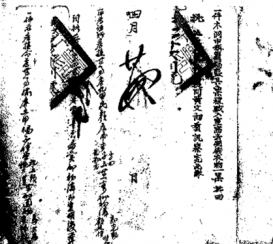This manuscript project outlines the evolution of the Qing apparatus of bureaucratic control and communication from the time of the Manchu conquest of the Ming (1644) to the end of the eighteenth century. The first half of the project outlines the documentary and archival innovations designed to facilitate the central state’s control over the judicial apparatus in the empire’s territories. The second half of the book explains how the evolution of a more stringent and information-intensive apparatus of bureaucratic control by the conclusion of the eighteenth century led to exponentially more information in the capital about the problems of the territories.
The conclusion discusses how the result of the Qing’s early achievements developing archival tools for bureaucratic control was an unexpected dilemma: at the height of the Qing state’s attempt to learn more about itself in order to govern more perfectly, the emperors and officials in the capital finally realized how much of the state’s function was out of the control of the metropole. The result was an epistemological crisis of the state: at the peak of its attempts to know and control the doings of its own bureaucracy, the central state became most convinced of its lack of control over the empire.

